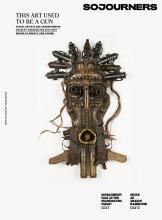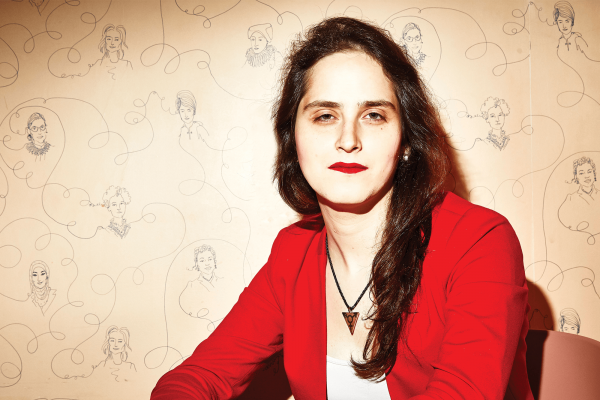IT'S A WARM September morning, and roughly 20 women are gathered in a women-only coworking space in Brooklyn. After brief introductions, a poem honoring the first month of the Muslim calendar, and a hymn from the Church of Jesus Christ of Latter-day Saints (widely known as the Mormon church), Abby Stein speaks about the upcoming Jewish High Holy Days.
Stein grew up in a strict Orthodox Jewish community and was assigned to be male at birth. From a young age, she says, she knew she was a girl, but didn’t have the vocabulary to describe what she was feeling. Gender roles were so strict in her community that, according to Stein, the concept of being gay or transgender simply didn’t exist.
“Forget separate roles,” Stein tells me. “Men and women aren’t even supposed to interact.”
For several years beginning when she was 9, Stein prayed every night that God would make her a girl while she slept. She began questioning her belief in God: “How can I trust my parents and teachers about something as big as God and religion that touches our entire lives when they could be mistaken about something so existential as who I am?”
Stein got married, was ordained as a rabbi, and had a son. But by her early 20s, it wasn’t working. She watched YouTube to learn English (she’d previously spoken only Yiddish and Hebrew), studied for her GED, and eventually left the community. She came out as transgender while an undergraduate at Columbia University and is now an activist in both transgender and formerly Orthodox communities.
Stein has found a new home in several LGBTQ-inclusive Jewish spaces, but she finds them limiting. “All of these communities, even the ones as progressive as they are, they still follow a very set tradition,” she says. At the September gathering, Stein discusses the biblical story of Ruth and her mother-in-law, Naomi, who share a deep love that some consider romantic. “If you ask me,” says Stein, with a half-joking grin, “everyone in the Bible is queer.”
Things are different at Sacred Space, a multifaith gathering that meets on the first Sunday of every month. The gathering is both a refuge for women who have left their religious traditions and a seminar for those who still hope to change their faith communities from within. No one religion is playing host. Everyone is welcome to bring their own traditions; only sexism, racism, homophobia, and other forms of exclusion are off the table.
Read the Full Article

